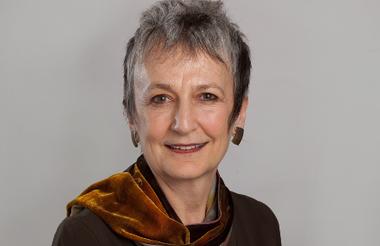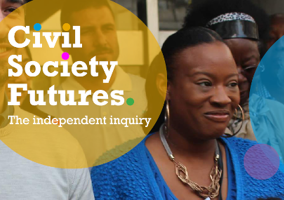Racism “remains such a scar across our country” that civil society has failed to deal with, Julia Unwin told an audience yesterday.
Unwin, who led the Civil Society Futures Inquiry in 2018, delivered the closing plenary at NPC's annual conference and issued a stark warning to the sector about its failure to properly address racism and other divisions.
She said one consequence of this is that people do not want to work in the sector.
She said that in 2018: “We reported that racism and failing to deal with racism was beginning to shatter the solidarity and confidence within civil society sector.”
Later, she went on to suggest that leaders had not made enough progress.
“I think there is a real failing on the part of civil society as a whole that racism remains such a scar across our country. It is one of the most damaging things we deal with, and we have failed in our duty to address it,” she said.
She said leaders needed to go further than thinking about recruitment to address the problem.
“Part of that is about who we employ but it's not just who we employ,” she said. “It's how all of us respond to that issue and how brave and courageous we're going to be instead of waiting for people to tell us what to do, how quickly we can take action.”
Some leaders “have done some brave and important things, but we are nowhere near where we need to be”, she added.
She urged leaders to consider who is part of their broader networks.
“It's what you do as an organisation and how you position yourself and who you're listening to and who's guiding you and who's advising, that's what matters.”
‘People don’t want to come and work in this sector’
Unwin said that, based on her experience of being part of recruitment panels, racism is putting people off working in this sector.
“People don't want to come work in this sector. They don't think it's giving them what they need,” she said.
To turn things around she said organisations need to “demonstrate that we are deadly serious about this”.
Unwin also said that some of the new Black-led organisations don’t see themselves as part of the sector.
“That's not how people define themselves, and good for them, because actually, our sector has always grown by people coming in and challenging and doing things differently,” she said.
‘Too obsessed with government’
Unwin encouraged leaders to look beyond government for solutions.
“The whole sector has become too obsessed with what's happening in government,” she said, when asked for her opinion on how well charities were influencing politicians.
Earlier in her presentation she criticised the government for “behaving as if [the crisis has] all happened, and we can move on, happily”.
She said in reality “the deep damage and problems caused” by the pandemic will be with us for a long time and “there will be a very long echo of what we've what we've been through”.
Unwin added that during the pandemic, civil society demonstrated the value it could have.
“We needed civil society to raise the alarm, and it did. We needed civil society to advocate for those who are ignored, and it did. We needed the mutual aid or we needed the emergency response. And I think we needed the mediation and engagement and civil society closely connected in its communities can bring,” she said.
Looking forward she warned: “We know that we are moving into a period of more turbulence with very heavy headwinds against us.”
This includes politicians who will criticise those who raise concerns, a refugee crisis, racism, the and the climate crisis.
“Civil society at its very best is absolutely central to meeting any of those changes,” she said.
However, the sector must recognise that “people are asking for is a fundamental shift of power and engagement with people in the places where they live”.
This means that while charities often consider their accountability when it comes to supporters to funders and regulators and government, they should consider “much more profoundly accountability, back to the people we serve”.
She cautioned against returning to old methods.
“Of course, the risk is that we think it's all over, and we revert to where we thought we were before. And we behave as if all we're going to do is asked for some crumbs from the new settlement.”
Instead, the sector should be more assertive and show that “that there is no economic recovery, there is no post-Covid recovery in sight, without active, engaged civil society”.
Related articles












